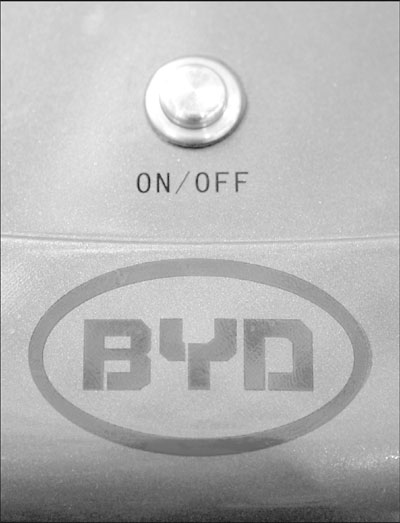BYD's discount may lead to price war in low-end market: analysts
Updated: 2011-02-19 06:23
By Emma An(HK Edition)
|
|||||||||
|
A BYD charging cabinet displayed at an auto show. The price cut followed the report that its Jan sales volume fell 15 percent. Andrew Harrer / Bloomberg |
Move announced after Jan sales fail to meet expectations
Mainland-based carmaker BYD Co Ltd said on Friday that it will slash the selling prices of its five models by up to one-fifth - the company's first ever official price cut - in a bid to boost sales. Analysts said that the move could trigger a price war in China's low-end car market.
BYD said in an e-mailed statement that it will cut the prices on its five best-selling models - the F0, F3, F3R, G3 and F6 - by between 3,000 yuan and 15,000 yuan each. The announcement came after the company reported earlier this week that its car sales by volume fell 15 percent in January. The company missed its sales target of 600,000 in 2010, which had already been revised down from 800,000. It sold a total of 519,805 units in 2010.
A total of 1.53 million passenger cars including sedans, multi-purpose and sport-utility vehicles were sold in January nationwide, up 16.2 percent from a year earlier, the China Association of Automobile Manufacturers said Friday.
Mathew Kwok, China division vice-president at Taifook Securities Ltd, said that the price cut could evolve into a price war among domestic lower-priced car manufacturers including Geely Automobile Holdings Ltd, which would be forced to cut its prices to retain market share.
Geely also underperformed peers, posting only 4 percent year-on-year growth in January car sales.
"As one of the major manufacturers on the mainland of low-end cars, BYD's move will put downward pressure on the prices of cars also in the lower-segment," said Kwok.
"Low-end car buyers tend to be more sensitive to prices," he added.
Patrick Yiu, associate director for asset management at CASH Asset Management Limited, agreed, saying that even with price cuts, low-end car manufacturers such as BYD will be facing a more challenging economic environment going forward.
"The weak sales trend will likely continue for the lower-end segment as increasingly affluent mainland consumers set their eyes on the likes of Mercedes-Benz and BMW," said Yiu.
Sales of the German luxury carmaker Mercedes-Benz more than doubled in 2010 to 147,670 units, while sales of its archrival BMW hit a record with a total of 168,998 units sold in 2010.
With the economy expanding at a growth rate of around 10 percent, China has become the market most coveted by foreign premium brands. Vehicle sales surged 32 percent in China to a record 18.06 million in 2010.
Meanwhile, analysts expect sales growth to slow to 10-15 percent in 2011 after the central government scraped the tax incentives for smaller cars in December 2010 and has begun to impose more restrictive policies on car ownership in order to ease traffic congestion problems in many big cities.
However, the sales outlook on the mainland may not be as bad for foreign carmakers such as General Motors Co and Volkswagen AG as they will be for the likes of BYD and Geely, noted Kwok. "Compared with domestic carmakers, pressure on GM and Volkswagen to offer price cuts are much less," said Kwok, citing their popularity with Chinese consumers.
GM posted sales growth of 22 percent in January, with 268,071 units sold. Volkswagen sold a total of 175,000 units, a rise of 29 percent.
BYD closed trading Friday in the city at HK$33.25 per share, down 1.92 percent. BYD shares have lost almost one-fifth of their value this year after dipping 40 percent in 2010 on lower-than-expected sales.
China Daily
(HK Edition 02/19/2011 page3)
